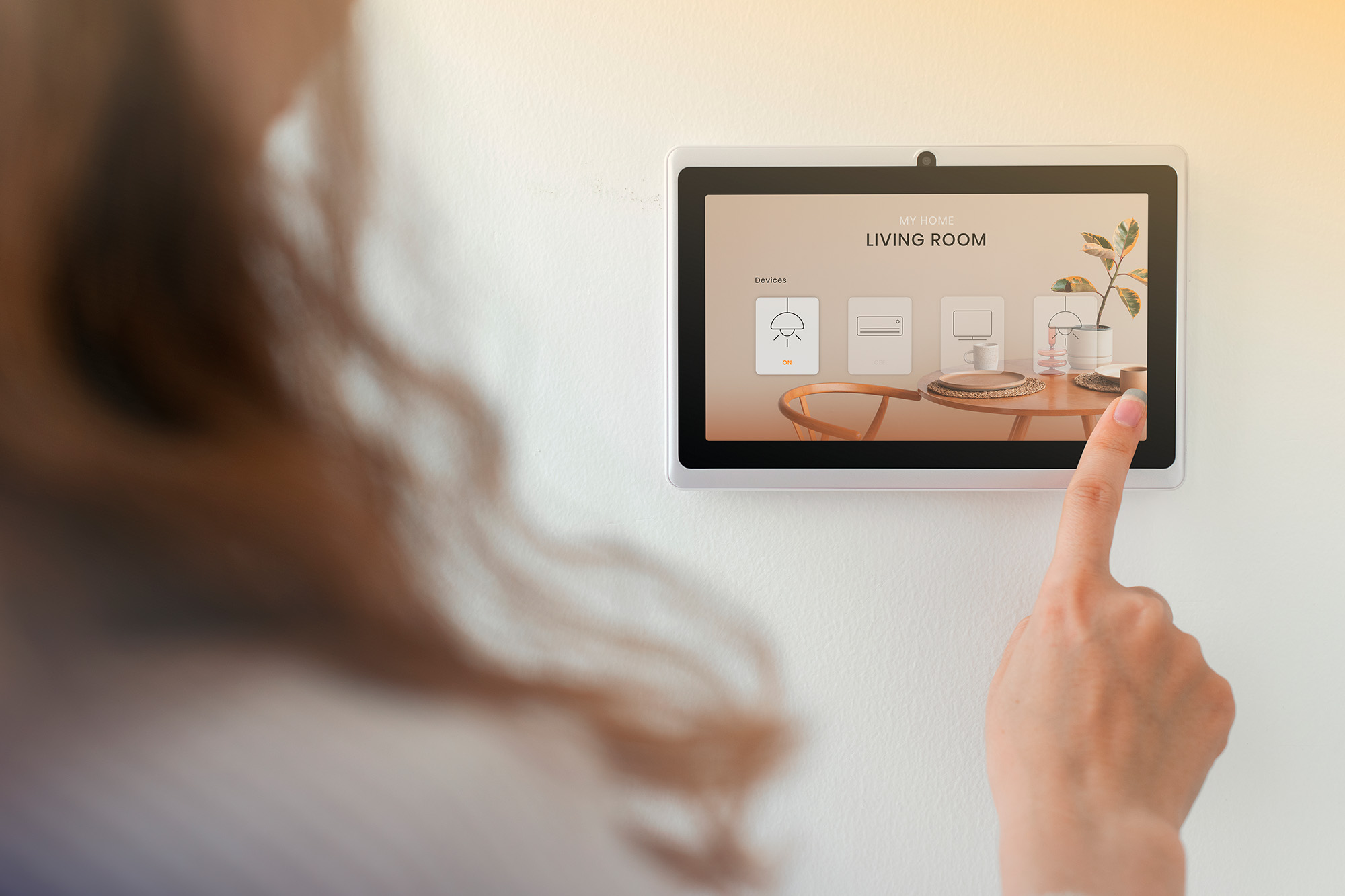Smart Homes Get Smarter: Enhancing Lives with AI

Smart Homes Get Smarter: Enhancing Lives with AI
October 20, 2023
In recent years, the concept of the smart home has evolved from a futuristic dream into a tangible reality. As technology continues to advance, smart homes are becoming even smarter, thanks to the integration of Artificial Intelligence (AI). AI has transformed our homes into highly intuitive, efficient, and personalized spaces that cater to our needs and preferences like never before.
In this article, we’ll explore how AI is enhancing our lives in smart homes, making them not just convenient, but truly intelligent.
The Power of AI
Artificial Intelligence (AI) is a branch of computer science that focuses on creating intelligent machines capable of performing tasks that typically require human intelligence. At its core, AI is all about leveraging data and algorithms to enable machines to learn, adapt, and make decisions.
In the context of smart homes, AI can be applied to transform traditional living spaces into highly automated and intelligent environments. Through machine learning algorithms and data analysis, AI systems can learn from user behaviour and adapt to their preferences, making homes more convenient and efficient.
6 Ways AI is Revolutionizing the Way We Live
1. Seamless Automation
AI-driven automation is at the heart of smart homes. AI is continuously learning and adapting to our daily routines and preferences, ensuring that our homes are always comfortable and energy efficient. These intelligent systems use data and algorithms to understand when lights should be turned on or off, when the thermostat should adjust for optimal comfort, and when devices should be activated or deactivated.
Voice-activated AI assistants like Amazon’s Alexa or Google Assistant provide a hands-free experience, allowing users to control various aspects of their homes effortlessly. They can control lights, thermostats, and even kitchen appliances with voice commands, making smart homes more eco-friendly and user-friendly.
2. Enhanced Security
AI-powered security systems are making homes safer through advanced monitoring and threat detection capabilities. Smart cameras equipped with facial recognition can distinguish between familiar faces and potential intruders, sending alerts only when a genuine security concern arises, and reducing false alarms.
These systems can also integrate with smart locks and surveillance cameras, allowing homeowners to remotely monitor their property in real-time through their smartphones. AI algorithms analyze patterns and data to identify unusual activities, enabling proactive responses to potential threats.
3. Energy Efficiency
AI can optimize energy usage in smart homes by continuously analyzing data and adjusting energy consumption. These intelligent systems learn our preferences for temperature and lighting and adapt settings accordingly to save energy without compromising comfort. For example, they can automatically adjust thermostats to optimize heating and cooling, turn off lights and appliances when not in use.
AI-driven algorithms can also provide real-time feedback on energy consumption, empowering homeowners to make informed decisions about energy-efficient practices. This will not only reduce utility bills but also contribute to a more sustainable and environmentally friendly lifestyle.
4. Personalized Entertainment
Entertainment systems have become highly personalized with artificial intelligence. Streaming platforms, such as Netflix and Spotify, use AI algorithms to recommend content based on our viewing and listening habits, creating a tailor-made entertainment experience.
Whether it’s suggesting movies, music, or TV shows, AI ensures that the entertainment choices align with an individual’s tastes. Furthermore, voice-activated AI assistants can seamlessly integrate with home entertainment systems, allowing users to control their devices with voice commands.
5. Health and Wellness
AI is also making strides in promoting health and wellness in smart homes. Smart devices can monitor vital health parameters, reminding us to take medications or suggesting workout routines based on our fitness goals and health conditions.
These systems can even detect anomalies or sudden health changes, sending alerts to caregivers or healthcare providers when necessary. Additionally, AI can analyze sleep patterns, helping users improve their sleep quality, which is essential for overall well-being.
6. Predictive Maintenance
AI can ensure that appliances and systems within the household run smoothly and efficiently. By analyzing data from these devices, AI algorithms can predict when maintenance or repairs may be necessary, considering factors like usage patterns, wear and tear, and manufacturer recommendations.
This proactive approach helps homeowners avoid unexpected breakdowns and costly repairs, as they can address potential issues before they become serious.
What The Future Holds
The future of AI in smart homes is poised for groundbreaking transformations. As technology continues to evolve, the possibilities for smart homes are virtually limitless. Here are some exciting developments to look forward to:
- Greater Personalization: AI will become even better at understanding our preferences and adapting to our individual needs. It will anticipate our desires, from adjusting lighting to match our mood to recommending recipes based on our dietary preferences.
- Enhanced Security and Privacy: Security systems will become more advanced, offering comprehensive protection and privacy features. Facial recognition technology will become more accurate, and data security will be a top priority.
- Energy Independence: AI-driven energy management will enable homes to rely more on renewable energy sources, reducing our carbon footprint. Smart grids will optimize energy distribution, making homes more self-sufficient.
- Healthcare Support: AI will play a more significant role in healthcare within homes. It will help monitor chronic conditions, provide medical advice, and even facilitate telemedicine appointments.
Our smart homes will become not just smarter but also more attuned to our needs and desires, making life more comfortable and enjoyable than ever before. Thanks to AI, the future of smart homes is a promising one, where our homes truly become our allies in daily living.